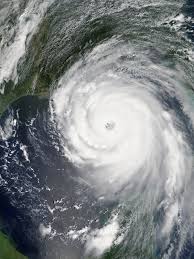
Introduction: The Significance of Hurricane Katrina
Hurricane Katrina, which struck in August 2005, is considered one of the most devastating natural disasters in U.S. history. The storm, which resulted in over 1,800 deaths and caused approximately $125 billion in damages, changed the landscape of disaster response and preparedness in the country. Understanding the long-lasting impacts of this hurricane is essential for improving future responses to similar disasters.
The Course of the Hurricane
Hurricane Katrina formed over the Bahamas on August 23, 2005, and rapidly gained strength as it made its way towards the Gulf Coast. On August 29, it made landfall near New Orleans, Louisiana, with winds reaching up to 125 mph. The storm surge overwhelmed levees, resulting in catastrophic flooding that submerged approximately 80% of the city. The Federal Emergency Management Agency (FEMA) and local authorities faced severe criticism for their response, which highlighted deep flaws in emergency management protocols.
Aftermath and Response
In the wake of Hurricane Katrina, the scale of the devastation in New Orleans and throughout the Gulf Coast prompted a national outcry for change in disaster management. Thousands were left stranded in oppressive conditions without immediate assistance, raising questions around preparedness and response times. As a result, significant reforms were implemented in how federal agencies conduct disaster response, including the formation of the National Response Framework and increased focus on local preparedness.
Long-Term Consequences
Eighteen years later, the lessons learned from Hurricane Katrina continue to shape policies at local, state, and federal levels. The disaster brought attention to wider issues, such as urban planning, infrastructure maintenance, and climate change, particularly the increasing frequency and intensity of hurricanes. Educational initiatives have become more prevalent, aiming to raise awareness among communities on disaster preparedness and risk mitigation.
Conclusion: The Legacy of Hurricane Katrina
As we reflect on Hurricane Katrina nearly two decades later, it is crucial to acknowledge both the progress made in disaster response and the ongoing challenges that communities face. The storm’s legacy is a potent reminder of the need for continuous improvement in emergency management, the importance of community resilience, and the reality of climate change impacts. Future preparedness and planning efforts must prioritize these lessons to ensure better outcomes for all in the face of natural disasters.



